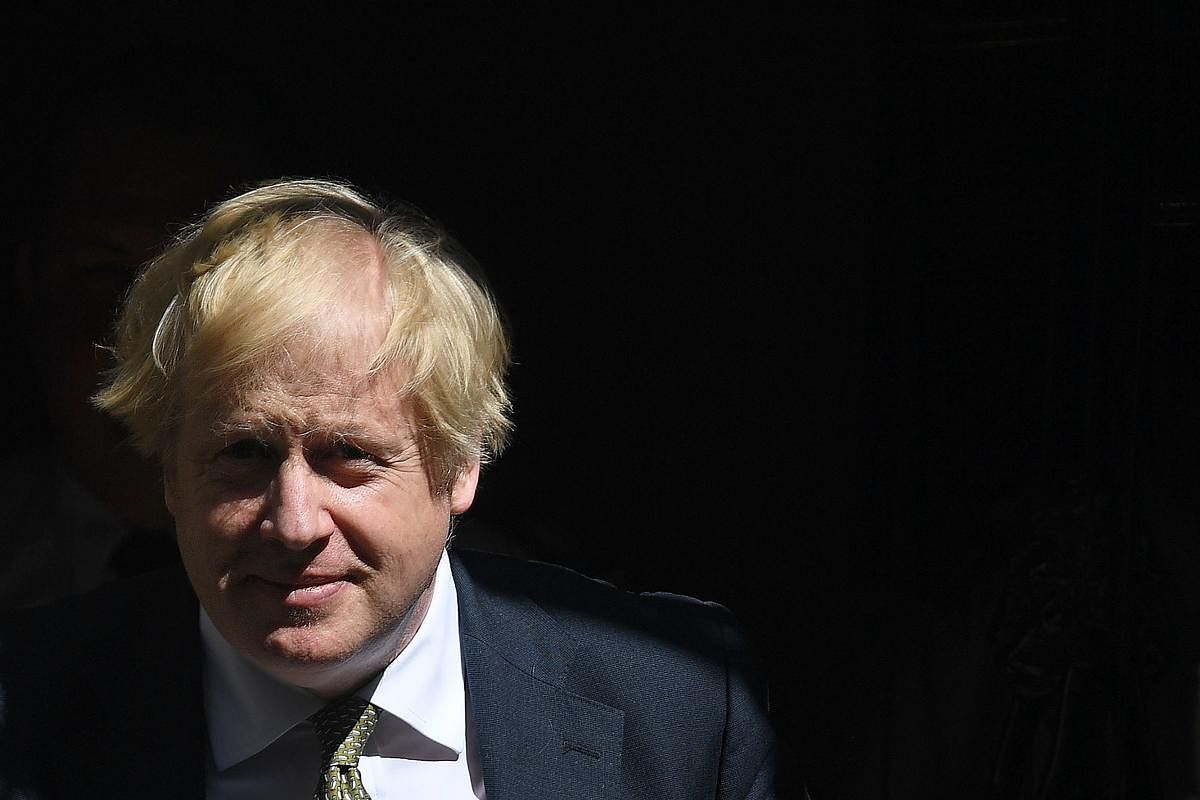British Prime Minister Boris Johnson on Wednesday returned to the House of Commons for the first time since he tested positive for coronavirus and had to be hospitalised as his COVID-19 symptoms worsened last month.
As he faced off with the new Opposition Labour Party Leader, Keir Starmer, for their debut Prime Minister’s Questions (PMQs) clash, Johnson declared that he was doubling the target for the number of daily coronavirus tests to be carried out in the country to 200,000 by the end of May.
"We're running at about 100,000 a day, but the ambition clearly is to get up to 200,000 a day by the end of this month and then to go even higher," he said, in response to Starmer’s query on the government's "test, track and trace” strategy to tackle the pandemic.
Johnson told MPs that a "fantastic" testing regime will be critical to the UK's long-term economic recovery.
He also confirmed that there will be a statement in Parliament next Monday on easing up some of the lockdown measures in place to contain the spread of the deadly virus. The UK government is bound by law to review the stay-at-home social distancing rules by this Thursday.
Johnson said he would wait until Sunday to announce the government's plans because more data would be available by that time, as he warned it would be an "economic disaster" to relax the lockdown in a way which triggered a second spike in coronavirus cases.
"The faster we can suppress the virus, the quicker we can restart the economy, and ensure communities get the help they need,” he said.
A television address is expected from Johnson this Sunday, during which he will lay out a “comprehensive plan” on getting the UK economy moving again.
Johnson had been diagnosed with COVID-19 on March 26 and was admitted to the hospital 10 days later. The following day, he was moved to intensive care.
On Sunday, Johnson revealed for the first time that there were "contingency plans" in place in case things went “badly wrong” and he died during his treatment for COVID-19 in the hospital.
Commons Speaker Sir Lindsay Hoyle has criticised the government for this plan to unveil a lockdown exit strategy in a televised speech before first running it past Parliament.
In a statement to the Commons, the Speaker said: “It has been widely reported that the Government will make a major announcement about the review of lockdown this Sunday.
"I consider this a matter of regret. It is important that the press is kept informed. But it is the duty of this House to hold the government to account, not the media. Major government announcements should be made first in the House and this is more important than ever during this time of crisis.”
However, Downing Street said it had a duty to set out the government's thinking "in a clear way to the public".
"What matters is that we get the right response, that we fully consider all the evidence and ensure that we communicate the next steps, whatever they may be, in a clear way to the public. We’ll continue to ensure Parliament is fully updated," a Downing Street spokesperson said.
The UK was put into strict lockdown measures in an effort to curb the infection and flatten the peak of coronavirus cases on March 23, with rules imposed on people to stay at home unless moving out for one exercise a day or for emergencies and essentials.
It has led to a near-complete economic shutdown, which the government is now working towards easing up gradually from next week.
The deaths in the UK from coronavirus on Tuesday rose to 32,375, making it the worst-hit country in Europe from the pandemic.
